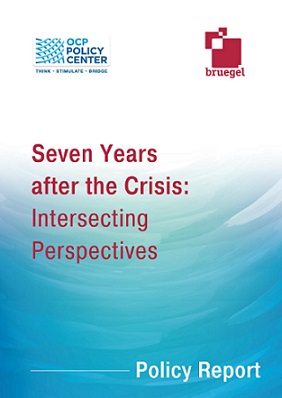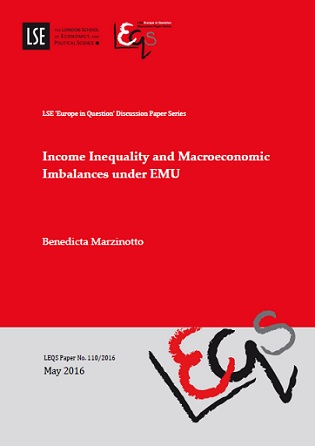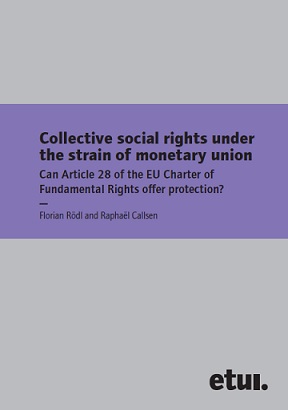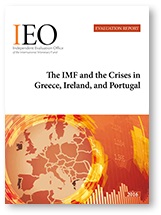Berahab, Rim, Boot, Nuria,Dadush, Uri, El Aynaoui, Karim, El Mokri, Karim, Tagliapietra, Simone, Wilson, Karen E., Wolff, Guntram B., Zachmann, Georg, (2016), “Seven years after the crisis: intersecting perspectives”, Bruegel, 19 Αugust This joint publication brings together the papers produced as part of the first collaboration between Bruegel and the OCP Policy Center. Within the theme of “Seven Years after the Crisis: Intersecting Perspectives” our two organisations launched a “Platform for Advanced & Emerging Economies Policy Dialogue” in Rabat on 1 April …Read More
Is The Nation-State And Its Welfare State Dead? A Critique Of Varoufakis
Navarro, Vicente, (2016), “Is The Nation-State And Its Welfare State Dead? A Critique Of Varoufakis”, Social Europe, 4 Αugust I always read the writings of Mr. Varoufakis with great interest, and I frequently find myself in agreement, particularly in his criticism of the Troika (the International Monetary Fund, European Commission, and European Central Bank) and of the Eurogroup (the Ministers of Economy and Finances of the European Union). I also …Read More
Unity in diversity: The way forward for Europe
Feld, Lars, Schmidt, Christoph, Schnabel, Isabel, Wieland, Volker, (2016), “Unity in diversity: The way forward for Europe”, Voxeu, 22 Αugust It has been suggested that the vote for Brexit marks the first step of disintegration in Europe. This column argues that if the European integration process is pursued wisely, it still carries the promise of enduring peace and growing prosperity. But EU policymakers must devise a process of integration that strengthens …Read More
The Euro Area Workforce is Aging, Costing Growth
Aiyar, Shekhar, Ebeke, Christian, Shao, Xiaobo, (2016), “The Euro Area Workforce is Aging, Costing Growth”, iMF-direct, 17 August In parallel to the aging of the general population, the workforce in the euro area is also growing older. This could cause productivity growth to decline in the years ahead, raising another policy challenge for governments already dealing with legacies from the crisis such as high unemployment and debt. Relevant Posts Barslund, Mikkel, Busse, Matthias, …Read More
The meaning of extension for the stability of collective bargaining in Europe
Schulten, Thorsten, (2016), “The meaning of extension for the stability of collective bargaining in Europe”, ETUI Policy Brief No 4/2016 Although union densities have fallen markedly almost everywhere in Europe over recent decades, many European countries still have particularly high and stable levels of binding collective bargaining coverage. The main reason is State support for collective bargaining systems. A central feature of this is the instrument of the declaration of general …Read More
Income Inequality and Macroeconomic Imbalances under EMU
Marzinotto, Benedicta, (2016), “Income Inequality and Macroeconomic Imbalances under EMU”, LSE, Μay This paper explains the build-up and reversal of euro area macroeconomic imbalances by considering the interaction between the underlying income distribution in each country and EMU-induced financial liberalization. The argument is that the sharp increase in money supply since the early 1990s had the effect of relaxing collateral constraints for illiquid lowerincome groups, whilst having no specific impact on …Read More
Collective social rights under the strain of monetary union
Rödl, Florian, Callsen, Raphaël, (2016), “Collective social rights under the strain of monetary union”, ETUI This report examines in depth the legality of the measures taken by the European Union, alongside the European Central Bank (ECB) and the International Monetary Fund (IMF), in the wake of the financial and debt crisis. Beginning with a factual presentation of the European Union’s post-crisis agenda, which has focused on a flexible, productivity-based wage policy, …Read More
Is Europe spending too much?
Djankov, Simeon, (2016), “Is Europe spending too much?”, LSE Europpblog, 28 July Yes, it is, according to Simeon Djankov. He notes that public expenditures had risen to dangerously high levels in some Southern and Western European countries even prior to the eurozone crisis and argues that the European Central Bank’s loose monetary policy since 2012 has provided public sectors with little incentive to modernise. This, in turn, may be helping to fuel Eurosceptic …Read More
The IMF and the Crises in Greece, Ireland, and Portugal
Independent Evaluation Office of the IMF, (2016), “The IMF and the Crises in Greece, Ireland, and Portugal”, IEO-IMF, July A series of crises hit several euro area countries from 2010 to 2013. The crises, coming so soon after the global financial and economic crisis of 2007–08, and occurring in a common currency area comprising advanced and highly integrated economies, posed extraordinary challenges to European and world policymakers. This evaluation assesses …Read More
From brain drain to brain circulation: How labour mobility can help less developed European regions
Crescenzi, Riccardo, Holman, Nancy, Orrù, Enrico, (2016), “From brain drain to brain circulation: How labour mobility can help less developed European regions”, LSE Europpblog, 29 July One of the potential problems created by the free movement of people is that skilled workers are drawn toward more developed areas, undermining the development of their own regions. As Riccardo Crescenzi, Nancy Holman and Enrico Orrù write, this process, commonly referred to as ‘brain drain’, can present a …Read More








